The Tourism Industry Association of Ontario (TIAO) is concerned about the federal cap on international student permits, which is expected to disproportionately affect Ontario’s tourism and hospitality postsecondary programs and industry workforce, in addition to other in-demand sectors. TIAO stresses the need for collaborative, proactive solutions among all stakeholders and levels of government to ensure that international students can access the in-demand jobs for which they have trained, better leverage Ontario’s domestic talent pool, and address the housing crisis to avoid future drastic actions by government.
International students are a vital contributor to the province’s tourism industry. International student enrolment in Ontario’s tourism and hospitality postsecondary programs has long outpaced domestic student enrolment, with these programs creating pathways for employment for in-demand jobs. International students and graduates are global assets to the tourism and hospitality workforce, ensuring that Ontario’s service economy can adeptly meet the needs of an increasingly global visitor market.
Unsurprisingly then, according to TIAO’s latest member survey, almost half of respondents reported that the federal cap on international student permits will affect or might affect their business, with members anticipating recruitment and retention to be more expensive or resource-intensive, not being able to hire for necessary positions, understaffing, and having to scale back services or offerings. Consultations with TIAO’s post-secondary partners revealed anticipated impacts to tourism and hospitality programs, particularly for programs where international students comprise 50% or more of student enrolment, significantly higher than the University (17.6%) and College (22%) enrolment average in Canada during 2021-2022.1 Ontario accounts for 70% of Canada’s international higher education enrolment.2 Food and beverage, events, and other tourism and hospitality sectors that rely heavily on these programs to meet employment demand will be particularly hard-hit.
Andrew Siegwart, President and CEO of TIAO, said, “With the federal international student cap affecting the tourism industry in addition to so many other sectors of the economy, TIAO calls for immediate consultation and collaboration between all tourism stakeholders, the provincial government, and the federal government in order to assess impacts and develop a response plan to protect the viability of post-secondary tourism programs, the experience and opportunities for international students, and the short- and mid-term economic performance of the tourism industry. TIAO offers to play a facilitative role to assist all stakeholders.
“Given the significant representation of international students in Ontario tourism and hospitality postsecondary programs, the federal cap is expected to disproportionately impact the tourism and hospitality industry, resulting in a much smaller pool of international talent graduating into the workforce—and fiercer competition from all economic sectors to recruit a smaller pool of talent. It is therefore critical to equip small and medium-sized tourism businesses with the tools they need to support effective recruitment, retention, and skills development. It is equally as important to enable pathways to permanent residency for graduates of in-demand sectors like tourism and hospitality.”
TIAO therefore calls for:
- The inclusion of TEER 4 and 5 in qualifying experience and job offers in the Ontario Immigrant Nominee Program and the Canadian Experience Class of Express Entry.
- The return to multi-year contracts within the Skills Development Fund to enable industry-led workforce development training to support domestic talent development and retention.
- The development of a robust, multi-ministerial tourism labour market planning and data forecasting strategy.
The federal cap underscores the tourism industry’s longstanding challenges with domestic recruitment. TIAO further calls for the immediate focus by the Ontario government to leverage and bolster existing secondary school programs which can help domestic students discover meaningful career paths, including those in the tourism industry. TIAO recommends:
- More proactive marketing of Specialist High Skills Major (SHSM) programs to students.
- A curriculum update to the Hospitality and Tourism SHSM program, with a focus on innovation and new technologies in the service economy.
- More proactive marketing of the hospitality and tourism component of the technical education credit.
Added Siegwart: “The federal cap is a reactionary policy that, while aiming to address housing supply, is not a substantial or sustainable solution to the housing crisis itself. TIAO calls on all levels of government to develop an accelerated plan to address the housing crisis to ensure that the supply of attainable housing keeps up with the demand of Ontario’s population.”
TIAO recommends:
- Establishing dedicated provincial funding streams to support and incentivize the local development and delivery of private sector workforce and attainable housing solutions.
- Requiring municipalities to approve more multi-unit residential buildings and increase density as part of their official plans.
Visit TIAO’s website to learn more about TIAO’s ongoing advocacy efforts on behalf of Ontario’s tourism industry.
<<ENDS>>
About TIAO
At TIAO, we work on behalf of our membership, collectively representing the majority of tourism businesses and employees across the province, to take on pressing policy issues that impact the Ontario tourism industry. TIAO leads the way in government relations on behalf of the Ontario tourism industry, including tourism businesses and operators, destination marketing organizations, regional tourism organizations, and educators. We provide evidenced-based policy recommendations to ensure the provincial government understands and addresses the multifaceted needs of the tourism industry.
TIAO propels the powerful and innovative Ontario tourism industry by connecting tourism leaders, innovators, government, and educators through events and conferences. We are proud to host the largest gathering of tourism leaders, educators, businesses, and government officials in Canada, at our annual Ontario Tourism Summit.
TIAO Media Contact
Şimal Görmüş
Communications & Multimedia Specialist
communciations@tiaontario.ca
